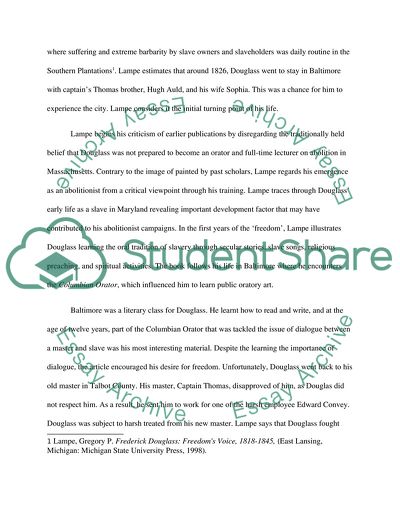Cite this document
(Analysis of Frederick Douglass: Freedom's Voice 1818-1845 by Gregory Book Report/Review, n.d.)
Analysis of Frederick Douglass: Freedom's Voice 1818-1845 by Gregory Book Report/Review. Retrieved from https://studentshare.org/history/1761283-book-review-frederick-douglass-freedoms-voice-1818-1845-by-gregory-p-lampe
Analysis of Frederick Douglass: Freedom's Voice 1818-1845 by Gregory Book Report/Review. Retrieved from https://studentshare.org/history/1761283-book-review-frederick-douglass-freedoms-voice-1818-1845-by-gregory-p-lampe
(Analysis of Frederick Douglass: Freedom'S Voice 1818-1845 by Gregory Book Report/Review)
Analysis of Frederick Douglass: Freedom'S Voice 1818-1845 by Gregory Book Report/Review. https://studentshare.org/history/1761283-book-review-frederick-douglass-freedoms-voice-1818-1845-by-gregory-p-lampe.
Analysis of Frederick Douglass: Freedom'S Voice 1818-1845 by Gregory Book Report/Review. https://studentshare.org/history/1761283-book-review-frederick-douglass-freedoms-voice-1818-1845-by-gregory-p-lampe.
“Analysis of Frederick Douglass: Freedom'S Voice 1818-1845 by Gregory Book Report/Review”, n.d. https://studentshare.org/history/1761283-book-review-frederick-douglass-freedoms-voice-1818-1845-by-gregory-p-lampe.


